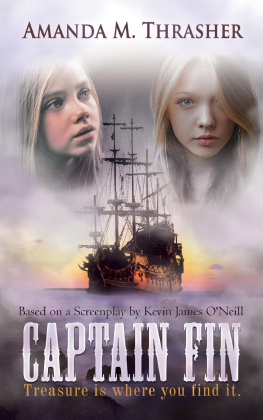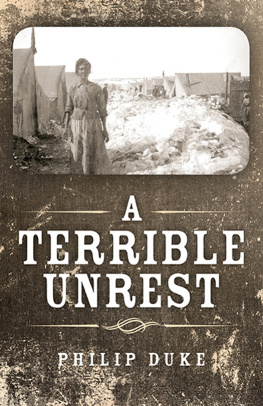Praise for Alone in Antarctica
Felicitys dynamic and inspiring storytelling links us all to our own crossing, helping us all push beyond our fears to reach our goals. Her descriptions of the ice and her honesty of the feelings it brings forth, stir our love for that magnificent place and the lifestyle of the challenge we want to return!
Ann Bancroft and Liv Arnesen, polar explorers
Felicitys gripping adventure captures the thrill and fear of Antarctic exploration
Ranulph Fiennes
Resilient, brave, daring, foolhardy, admirable and hugely likeable
Joanna Lumley
Praise for Call of the White
An uplifting and enthralling feat; I take my fur hat off to all those who answered this call of the white. An inspiring tale which will stir the hearts of women and men around the world
Benedict Allen
A unique expedition this story is true inspiration to venture beyond your comfort zone
Wanderlust magazine
Enthralling
Womans Weekly
Uplifting
Adventure Travel magazine

Copyright Felicity Aston, 2014
First published by Summersdale Publishers Ltd, UK
All rights reserved under International and Pan-American Copyright Conventions. No part of this book may be used or reproduced in any manner whatsoever without written permission from the publisher, except in the case of brief quotations embodied in critical articles and reviews.
Library of Congress Cataloging-in-Publication Data
Aston, Felicity.
Alone in Antarctica : the first woman to ski solo across the southern ice / Felicity Aston.
pages cm
ISBN 978-1-61902-400-7
1. Aston, FelicityTravelAntarctica. 2. Cross-country skiingAntarctica. 3. SurvivalAntarctica. 4. Women adventurersAntarctica. [1. AntarcticaDiscription and travel.] I. Title.
G8502011 .A75 2014
919.8904dc23
2014014413
COUNTERPOINT
2560 Ninth Street, Suite 318
Berkeley, CA 94710
www.counterpointpress.com
Distributed by Publishers Group West
10 9 8 7 6 5 4 3 2 1
CONTENTS
BY JOANNA LUMLEY
I met Felicity Aston at the Royal Geographical Society: we were speaking about journeys we had made, along with Robin Knox-Johnston and Ranulph Fiennes, so I was pretty comprehensively out of my depth, as all I was going to talk about was being on a desert island for nine days, visited every day by a small film crew. This could hardly be on the same page as Felicitys phenomenal journey, so I was especially touched when she asked me to write the foreword to this book. What had struck a chord with her apparently was how we both, as women, had experienced sensations of utter alone-ness, cartwheeling minds, mild hallucinations and a feeling that nature, for want of a better word, was watching out for us. It is always fascinating to hear how others have coped with hardships with which we in some way feel we can empathise. I started reading the book at once, as soon as she sent it to me: I read it straight through and now try to herd my stunned impressions into some kind of shape.
Alone usually means without anyone else: Ill come alone, I was alone on the beach, Leave me alone. When we use the word we imagine that, although the writer is without human company, evidence of humanity is around: houses, books, roads, fields, footprints of human existence. But imagine alone meaning to be without the world as we know it, without horizons or daylight, without distance or objects to focus on, without high or low, when all perspective is lost; and then try to think of that weird and dreadful condition day after day (if you can tell the difference between day and night) combined with danger, complete isolation, when your physical toughness is tested to the extreme and your mind begins to somersault off towards the edges of sanity This is the alone that Felicity Aston chose to face in her astonishing journey across Antarctica.
And cold what does cold mean to you? Putting on gloves and a thick coat, jumping up and down, sitting on the radiator? It doesnt usually mean having icicles on your eyelashes, your bra filled with batteries and lighters, being locked inside layers of frozen clothing.
Crying your eyes out, knowing no one is coming to help you as you are miles from any possible sign of life, surrounded by the most hostile conditions on Earth, is not an everyday event in our normal lives, and this is the point: nor is it normal in hers. Resilient, brave, daring, foolhardy, admirable and hugely likeable, she traces for us the whole journey and why she made it in the first place: her terrors and routines, her eating habits (gnawing half-frozen food and posting tiny bits of chocolate through her breathing aperture) and dream-like encounters with the sun, her guardian and her inspiring companion.
Her writing is so modest and humble that it is sometimes hard to grasp the scale of her record-breaking adventure. What comes over strongly is her sheer perseverance, her dogged determination.
If you can force your heart and nerve and sinew
To serve your turn long after they are gone,
And so hold on when there is nothing in you
Except the will that says to them: Hold on!
Felicitys version of Kiplings words is simply: Keep getting out of the tent. Her greatest fear, it turns out, is the fear of being alone: and when she decides that she need never be completely alone again, ever, for the rest of her life, it seems like a sign for us all. Once you have faced your demons down and clung on to the bitter end, terror melts away in the warmth of the sun, who is, after all, your friend.
The plane had become a tiny black blob in the pale sky. I could still hear the distinctive drone of its engines but with every breath the sound became fainter. I closed my eyes to focus my ears on the noise but it was slowly, and inevitably, blotted out by the silence. When I opened my eyes again, the plane had gone.
I was alone.
I stood motionless for a second, breathing in the cold air. Even the smallest of movements sounded brutally intrusive in the stillness: the rasp of brittle fabrics, the polystyrene squeak of my boots in the snow. I turned on the spot, running my gaze slowly over the horizon, trying to take in my surroundings. After months of contemplating this place on the map it seemed unreal that I was now physically here. To my right was the flat expanse of the Ross Ice Shelf, a featureless divide of white snow and blue sky, while to my left were the Transantarctic Mountains which extended in an unbroken line as far as I could see in either direction. The sun, still high in the sky although it was almost midnight, bounced from the mountainsides of vibrant orange rock and turquoise ice. Each peak appeared intimately close-by even though I knew that I could travel for hours towards them and still not touch stone.
As I looked in wonder at all this surreal magnificence one thought echoed through my brain: in all this landscape, in all this space, I was the only living thing. I could search every fold of rock, every block of ice and not find so much as a nesting bird, a minute fly or a single blade of hardy grass. Even bacteria have a hard time surviving in this part of the world. The nearest open water where any wildlife was to be found was more than 700 kilometres away to the north and the nearest human habitation perhaps as much as 1,000 kilometres to the west. The scale of the emptiness was almost too much to absorb. I dragged my attention away from the distant horizon and refocused.
Time to get sorted, I told the air.
Moving purposefully towards the two small plastic sledges at my feet, each containing a bag that bulged with food, stove fuel and equipment, I pulled open the zip of the bag nearest to me. As I sifted through the contents I realised I had forgotten what I was looking for.
Next page







